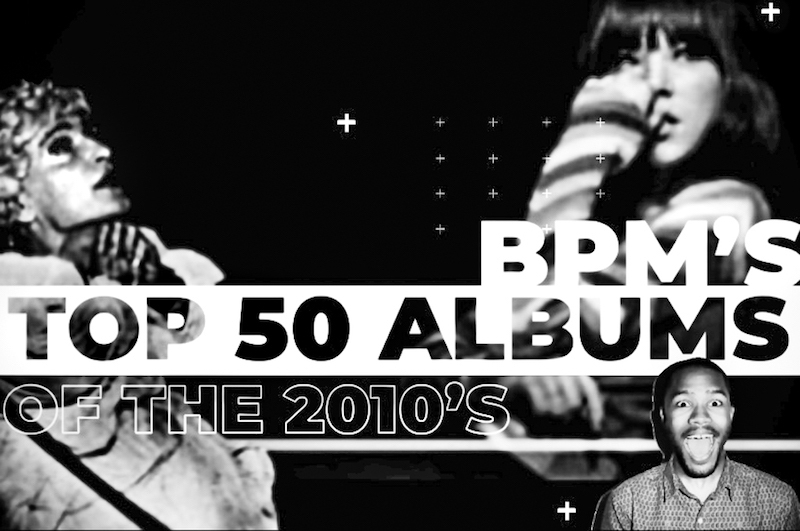This isn’t some alternate timeline, or an instance of you waking up from a long Super Mario World 2-esque dream scenario where the last two years were just a really bad movie. We are actually publishing a Best of the 2010s album list two years after almost everyone else did.
A few factors played a part in this, mainly the fact that BPM was resurrected in 2020 after being dormant for some time, but perhaps more importantly, albums from 2016-2019 get a rather unfair assessment compared to those from the first half of the decade, which have had plenty of time to accrue value. On the other hand, some albums from the latter half of the decade that were showered with praise may have dulled since, and some that weren’t even on the radar have grown into classics. Truly, we have more honest perspective on the 2010s now than we did in December 2019.
We’ve whittled down to just a Top 50. It’s a mere snapshot of a decade that housed some of the best music any of us have ever heard. It was a decade of massive upheaval, new trends and old taking center stage alternately. Genres were resurrected and then receded. Music streaming services took hold, allowing people to access, discover and share more music more easily. The lines began to blur between pop and indie, independent artists started winning mainstream fans worldwide – and even getting nominated for Grammys.
The following 50 albums, plus our 20 Honorable Mentions that we revealed yesterday, are our attempt to distill the most essential records of 2010 to 2019 into a definitive list. Of course it’s a futile task, but we tried it anyway, and hopefully you’ll get to know a little bit more about who BPM are along the way. At the very least it’ll give you a reason to get indignant about all your favorite records that we left out.
Enjoy!
Listen to a Spotify playlist of our favorite tracks from BPM’s Top 50 Albums of the 2010s

50.
Meitei – Komachi
[Métron; 2019]
There’s an aqueous timbre running throughout Komachi, the 2019 album from Japanese sound/ambient artist Meitei. It’s a susurration that whispers beneath all polychromatic tones of this wondrous and textural album, a flowing stream that threads the album together while also tying into the themes and ideas that expand beyond the record; the sound flowing through the record is not just water, but time itself.
Created in the wake of the passing of his 99-year-old grandmother, Komachi is Meitei’s reckoning with the loss of the traditional tones and ambiance of Japan. Rooted in ideas of a nation receding into the sands of time, Metei uses modern production techniques to bring us a vivid recreation of the past. His twinkling sounds and subtle field recordings are combined into fully-rounded aural glory, creating a bubble where you can see and hear the sounds of a century before.
There may be no words on Komachi, but throughout you feel the creator’s presence, a spirit that lives within the glistening electronic tones, dashing about the productions to ensure every subtle detail within them doesn’t escape your attention. It may be abstract in both idea and execution, but immersing yourself in Komachi is a potential mental trip to a historic setting, where your imagination is invited to respectfully reside – if only for a while. – Rob Hakimian

49.
Brandy – Two Eleven
[RCA; 2012]
There was an excruciating wait for R&B icon Brandy’s (also lovingly dubbed The Vocal Bible’s) follow-up to 2008’s incredibly underrated Human. But, thankfully, her sole release of the decade, Two Eleven, gloriously arrived as a 15-track testament to love, sex and heartbreak with more forward-thinking production.
As a statement, Two Eleven denotes both Brandy’s birthday and the date of death for her mentor and friend Whitney Houston. As such, the album can be considered a rebirth for the singer, who embraced edgier concepts and engaged with progressive R&B trends to create something current and fresh. It still, however, retains all the classically Brandy aspects fans crave with her typically layered harmonies, astonishing agile runs and rich timbre.
There are many engaging quirks on the project: a Lykke Li sample on the boppy “Let Me Go”, the UK garage influence on the coy “Slower”, and the bouncy minimalism of “Put It Down”. Almost no track could be said to be similar in vibe to the one preceding it.
With a bountiful array of upbeat numbers, she also naturally turns into more introspective and romantically yearning tracks. The Frank Ocean-written “Scared of Beautiful” is a lovely yet sombre track about avoiding the good aspects of life and taking refuge in cynicism. Of course, the album also harks back to some glorious mid-tempo balladry such as the exquisitely romantic and pleading “Without You” and the gospel-tinged, organically-instrumented “Wildest Dream”. Brandy was not aiming for a cohesive record but rather one that delivers an array of different flavors all prepared to a high standard.
This album also embodied a grown sexiness such as on the blippy, playful “Do You Know What You Have?”; an emphatic question that encourages a lover to acknowledge that their partner is special and Brandy has no qualms about finding someone who knows her worth if it’s not meant to be (“If you change your mind boy / You’re free to go / Just do me a favour / Leave your keys on the table.”) The deliciously jarring “What You Need” begins with blossoming harmonies and dramatic strings before segueing into a deep bass rhythm strong enough to knock your fillings out as she sings “I’ll be in the kitchen in your favourite position.”
Arguably her most experimental track (and the best on the project), “So Sick” is a tantalizingly complex array of bass-shattering synths, wacky drum patterns and frenetic melodies. It finds Brandy at her most aggravated and jaded over a partner’s shitty actions (“I done seen this flick before / G-g-gave him plenty of warning / He said he wouldn’t do it again”). As the chorus progresses into a thrumming modulated keyboard and echoing piano, she admits the difficulty of leaving a toxic relationship (“Sick / When you take him back every time / Cause the love is so amazing / It makes you so / Sick”), and it’s a lot more aggressive than Brandy’s usual fare as she asks: “Can you tell me how far / Does someone have to push you for them recognize / They pushed you over the line?” Such tracks are a standout in a beloved discography where she frequently pushes the envelope, and Two Eleven proved that she could hold her own alongside a new wave of contemporaries. – JT Early
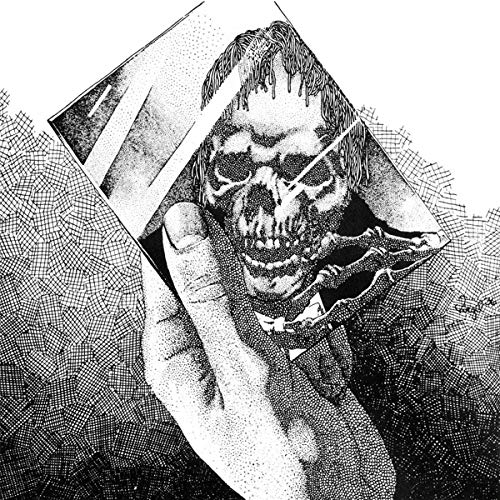
48.
Oneohtrix Point Never – Replica
[Mexican Summer; 2011]
It’s raining in geocity during sunset. The smoke rises off the asphalt as the coroner shuts the last few corpses into storage, the lifeless bodies restlessly anticipating their resurrection as cyborgs. As the sun sets, purple rays drain the color off the office rooms of the Oneohtrix Pharma pyramid. There, Daniel Lopatin stands by the window, hands in his pockets, dreaming with his eyes open. The man who came up with the aesthetic just coined ‘vaporwave’ on his legendary opus Eccojams has already moved on.
What comes after the end of all time? How to progress when you’ve buried the 21st century by reconfiguring “Lady In Red”? As the urban dystopia below him re-enacts its daily loop somewhere between Ghost in the Shell and Syndicate, Lopatin lifts his hand and observes his face in a tiny mirror he found in one of the foggy back alleys below. He doesn’t recognize what stares back at him, as the framed screens behind him immediately translate his thoughts into Escher-like drawings.
He has questions we all have, such as: Am I alive? Is there a soul within my body? Do I even have a body, or am I just imagining it? There’s the ultimate question: what if this is not reality, what if I have reached the end of the internet? (Am I a punchline in some obscure gothic virtual fiction composed by A.I. after the end of all: the last ghost of man?)
Indeed: will there be anything new beyond this vantage point, where everything has been said and done? In his mind, the thoughts converge. Now the mirror image shifts to that of a skeleton. Something is off, and he asks himself: am I dreaming? And if so, what music plays within? Oh god – how much time have I left? The skeleton in the mirror observes him, unwavering, unsmiling, grotesque and alien, as he moves to a shelf: all the CDs here are clean white, no labels. Are they all the same? He takes one, inserts it into a slit in the wall and thinks: ‘Please Play.’ Oneohtrix Point Never‘s REPLICA starts. The sun is set now, the only light emanating comes from the non-existent city below.
Lopatin listens.
Like you must.
You’ve been asleep.
Please: wake up.
– John Wohlmacher
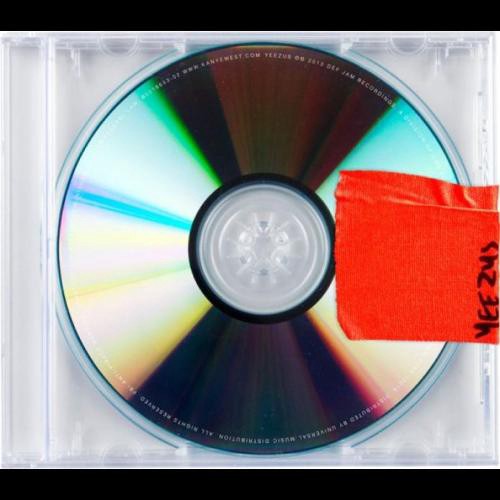
47.
Kanye West – Yeezus
[Def Jam/Roc-a-Fella; 2013]
Was Kanye West as bummed as I was about the Tinymixtapes hiatus? Yeezus indicates that yeah, probably he was! I mean, Arca is on this thing, and this is before Arca (or FKA Twigs) even had an album out. Was Yeezy up on OPN, vaporwave, Dean Blunt and Death Grips? Yeezus answers: yes!
As lush and maximalist as 2010’s My Beautiful Dark Twisted Fantasy was (with Rick Ross’s verse on “Devil in a New Dress” arguably the apex of luxury rap), Yeezus was equally grimy and outré. And this wasn’t exactly expected, since between these two solo efforts came two of Ye’s (then-)lesser releases: the slightly underwhelming Jay-Z collab Watch the Throne and the spotty compilation album Cruel Summer, both of which could have used a bit more daring and oomph. But not Yeezus: this record opened with blasts of noise and damaged techno (courtesy of Daft Punk, RIP).
As a freshman in college, the jock bros derided it: “you have to be high to like this album.” Which, okay, drugs certainly didn’t hurt the experience. But Yeezus is its own psychoactive substance: it’s Kanye at his most thrilling.
“I’m in It” is Yeezus in microcosm, a wild ride filled with airhorns, dog barks, Assassin’s blazing patois (before Kendrick used it!), Kanye referring to his dick as a reptile and, in a moment of ultimate catharsis, screaming bloody murder. Elsewhere, he takes on the prison-industrial complex (“New Slaves”), goes binge-drinking with Chief Keef and Bon Iver (“Hold My Liquor”), and synthesizes Billie Holiday with TNGHT (“Blood On the Leaves”). Finally, in “Bound 2”, he proves himself the consummate crate-digging producer who made The College Dropout, talking shit over one of his most blissed-out samples. – Ethan Reis
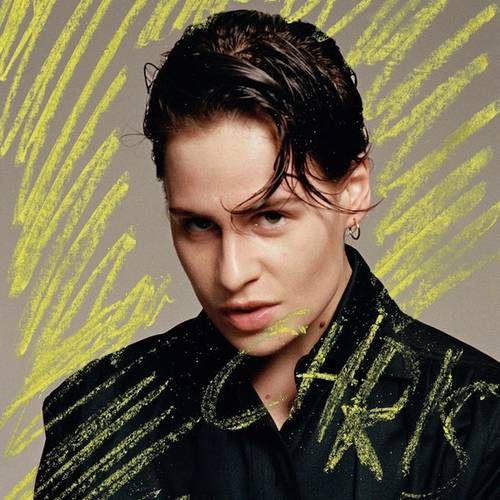
46.
Christine and the Queens – Chris
[Because; 2018]
Héloïse Adelaïde Letissier is a 21st Century icon of enigmatic ambiguity. Her self-described brand of ‘freakpop’, born of her time performing in London supported by drag queens, is deliberately elusive and unplaceable. There are 80s sounds aplenty yes, but she’s no nostalgia artist. Her use of language is equally fascinating; she doesn’t commit exclusively to English pop nor French pop, but somehow manages to be both at once, thus rendering the boundaries between languages and cultures meaningless. Her identification as pansexual and genderqueer is absolutely central to her art, and represents another way in which she blurs boundaries.
Both Chaleur Humaine and Christine and the Queens‘ second album, 2018’s Chris, are boundlessly intriguing studies of gender. “I’m a man now” she sang in the opening song of her debut LP, “and there’s nothing you can do to change my mind.” On Chris, she dropped the ‘-tine’ entirely as she explored the role that masculinity plays in her life, crafting a self-portrait of an utterly fascinating, deeply complicated character, coming to terms with her own desires, horniness and rage. Her nuanced portrayal of her internal conflicts, her sexuality, and her mental health are all matched perfectly by her immaculately tasteful, minimalistic, yet creative approach to production and her preternatural gift for slippery yet unforgettable melodies.
Allow me to state this as unambiguously as possible: in her combination of self-possession and heart-rending self-examination and openness, her impeccable songcraft and ear for diamond-cut arrangements, as well as her mastery of her physicality and visual presentation, Letissier represents the complete package as a pop star: both as style icon, and purveyor of instantly classic, irresistibly catchy songs. Chris had its champions (it clinched the #1 spot on several end of year lists), and yet it still feels underappreciated. It is one of the decade’s pre-eminent pop albums. No debate. – Andy Johnston
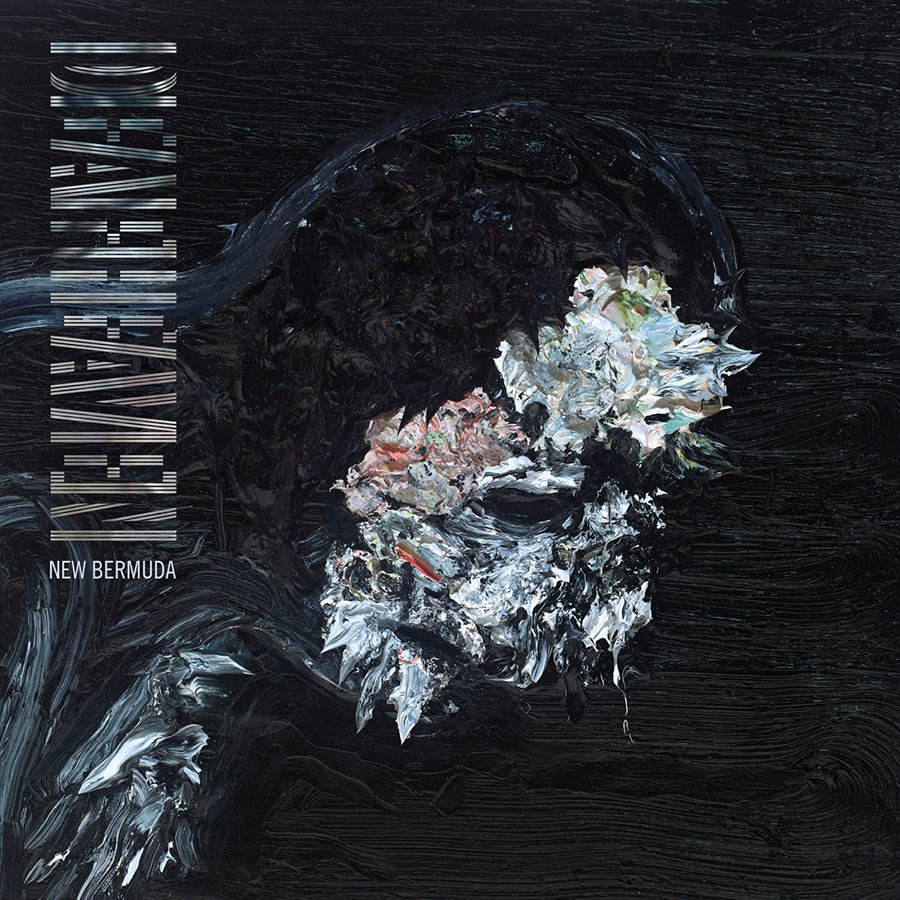
45.
Deafheaven – New Bermuda
[ANTI-; 2015]
Following the surprise crossover smash that was Sunbather, Californian post-metal behemoth Deafheaven had a newly-inked deal with Anti- and significant boost in their recording budget. But, just because more ears would now be on them, the quintet were not going to hold back on the viciousness on the follow-up, and New Bermuda doubled down on the template set out by their early albums. With higher fidelity allowing us to hear each and every element of their sonic maelstrom, Deafheaven delivered five genuinely monumental songs – or mini-symphonies really, in the way they’re constructed and carried out.
Opener “Brought to the Water” sets out Deafheaven’s aims in no uncertain terms with George Clarke’s demonic shrieks and Daniel Tracy’s torrential drumming bombarding your eardrums in the early segment, before they move through several more scorching, guitar-led movements. It’s almost they’re saying ‘we’ve brought you to our water, now drink from it or get the fuck out.’ Those who stick around will be rewarded – not only with countless more moments where they detonate their seismic instrumental onslaught, but also with many periods of serene, frost-bitten beauty. Album mid-point “Baby Blue” is perhaps the best example of this, as it begins with three minutes of shimmering guitars and drums, skating together miraculously across a razor-thin tightrope, only to suddenly plummet with the force of a nuclear bomb, creating a hellish crevice that they drag you hair-raisingly down into – Kerry McCoy’s pyromaniac guitar solo like wildfire all around.
Despite its outward viciousness, New Bermuda is not an overwhelmingly dark or depressing album, just one that finds Clarke challenging his foundations and, with the help of his bandmates, blasting through them to some kind of acceptance. This is all tied up neatly with the closing “Gifts For The Earth”, which might find Clarke envisioning his death, but in a euphoric way – taking solace that his body will eventually become part of the Earth, nourishment for the planet itself. With his bandmates providing a demented rainbow of colours to accentuate the perverse beauty of this thought, the result is sheer bliss. – Rob Hakimian
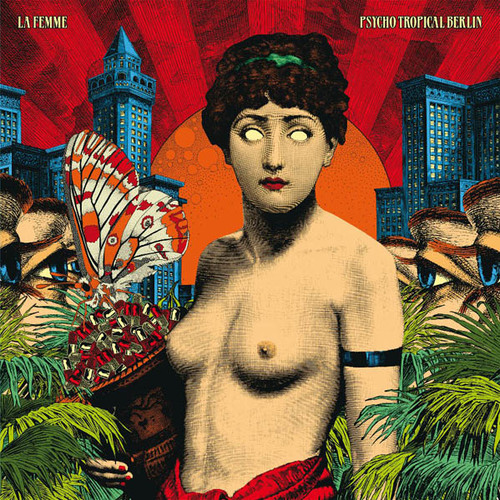
44.
La Femme – Psycho Tropical Berlin
[Disque Pointu; 2013]
La Femme had been dipping in and out for a while, releasing three EPs (La Femme EP, Le Podium, and La Femme) and several singles as if they were carefully doing some ground recon before the big one. And when Psycho Tropical Berlin finally came out in April 2013, it did feel like a long time coming – and nothing like anything we’d ever heard before.
Some called it ‘strange wave’ (a label the band itself seemed pleased with), but the fact is Marlon, Sacha, and co. had managed to craft such a unique, uncanny, and extremely addictive sound that any attempt at categorisation immediately felt like a ridiculous failure.
Containing single after single after single (some of them in their umpteenth incarnation, since most had been around since EP number one), Psycho Tropical Berlin exuded hypermodern synth romance heavily laced with cynicism and high-quality speed. Almost a decade later, choosing one single highlight from “Sur La Planche”, “Nous Étions Deux”, “Antitaxi”, “It’s Time To Wake Up 2023”, “Packshot”, “Hypsoline”, and all the other instant hits is still an impossible task.
And, even though La Femme’s fickleness and constant line-up changes never did allow them to match the geniality of their debut (their latest offering Paradigme pretty much slipped under most people’s radar), Psycho Tropical Berlin will still sound as fresh and exciting when it’s played in that dystopian, not-so-distant future they describe on “It’s Time To Wake Up”: “Just like every morning I am lucky / I have my two kidneys and I’m alive.” – Ana Leorne
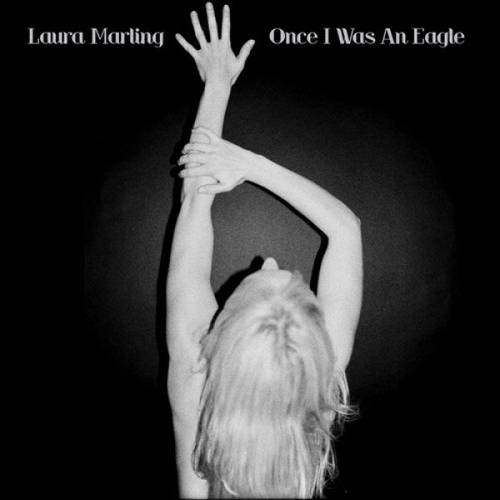
43.
Laura Marling – Once I Was An Eagle
[Virgin; 2013]
Some albums demand a listener’s attention. They announce themselves loudly, annihilate any outside distraction and seemingly retool one’s DNA. Within 30 seconds, they position themselves as a masterpiece, every single moment eternally essential.
And when Laura Marling performs the iconic 15-minute medley at the beginning of Once I Was An Eagle, there’s no uncertainty left: this is absolutely outstanding music, both inherently familiar and like nothing else around. It’s a powerful, unforgettable performance, filled with some of the most jaw dropping lyricism ever committed, situating Marling as a grown, powerful force to be reckoned with: “Today I will feel something other than regret / Pass me a glass and a half-smoked cigarette / I’ve damn near got no dignity left / I will not be a victim of romance […] / Chance or circumstance or romance, or any man / Who could get his dirty little hands on me.”
Coming after the exploratory and slightly confused A Creature I Don’t Know, Once I Was An Eagle saw Marling more confident than ever, exploring ambitious compositions and expansive female narratives that smell of sea-salt and cigarette smoke, her characters winged creatures, mermaids, fallen angels, shapeshifters. In 16 tracks, the little bird becomes a harpy, ends a phoenix and rises as an eagle. By the time “Saved These Words” ends the album on a surging climax, the hunted has become the hunter. If there’s an album this generation that rivalled Joni, Bob and Leonard, that erased the past and remade it in its image, it can’t be anywhere but here. – John Wohlmacher
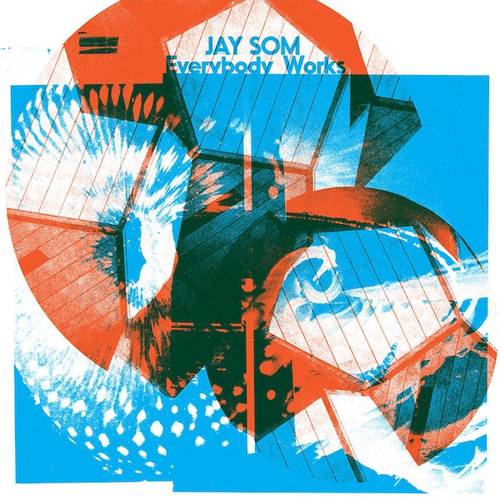
42.
Jay Som – Everybody Works
For those not paying attention, it’s easy to overlook the brilliance of Everybody Works. Melina Duterte’s second LP under the name Jay Som easily evokes the classifier bedroom-pop, which is certainly true. Yet from the lush chords that open “Lipstick Stains”, it’s clear that she’s aiming higher than most others working in the genre.
She expresses her frustration with a partnership in limbo on “One More Time, Please”; “I can’t wait to find rest / Won’t you just give me peace of mind,” she repeats over a hazy bed of distant guitar strums, twinkling piano keys, and rolling percussion. Love is a theme explored throughout the album, but Duterte raises the stakes at almost every turn. Indeed, Everybody Works exists on a level of intimacy reserved for lovers.
Duterte recorded the album in her home studio and plays every instrument herself (save some background vocals). The blend of swooning trumpets on album closer “For Light” complements her hazy vocals and help conjure something close to hope (“I’ll be right on time / Open blinds for light / Won’t forget to climb”). The dreamlike ambiance of Everybody Works is indebted significantly to her guitar work; listen to the heavy, swirling riffs that send out “One More Time, Please” and build up the climax of “Take It”. The chipper guitar plucks that glide into a swooning bed of synths help make “Baybee” an album standout. Her talent as a singer, songwriter, and arranger shine across the album.
Let’s not forget the title track, where Duterte breaks down her struggles; “Try to make ends meet / Penny pinch til I’m dying / Everybody works,” she sings, which is a message of empathy and solidarity, not to a partner, but to others who are working hard just like you. This idea easily slips into the album’s 35 runtime. Then again, great art, regardless of medium, appears effortless. By that logic, Everybody Works is proof that perfection is possible. – Carlo Thomas
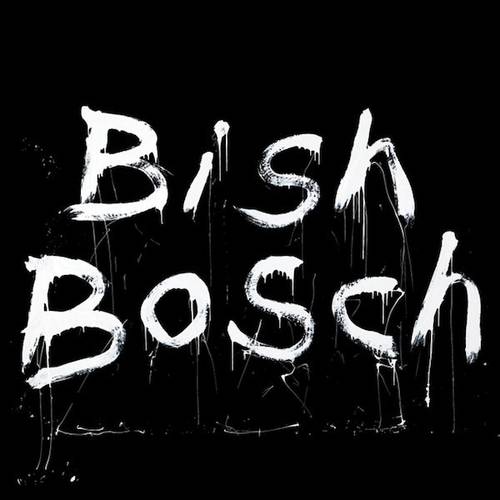
41.
Scott Walker – Bish Bosch
[4AD; 2012]
Avant-garde, abstract, austere, and impressionistic, Scott Walker’s final album as a solo artist is anything but an easy listen. Bish Bosch is a skewered opera of high music and low subject matter, where the wonder of the aural tapestries he conjures underpins the musings of a squalid world of reeking gonads, putrid petals, and being crushed from the inside out. He’s taking the piss, and loving every minute.
The songs switch from swooning drone-fests to sweeping minimalism to searing neo-classical noise pieces (is that even a thing? It is now). Walker is a commanding presence on the record, all soaring vocals and highfalutin subject matter that feels impossible to intellectually penetrate. It could, of course, all be complete nonsense but what a glorious nonsense it is. The centerpiece to the album is “Epizootics!”, which is twisted and funky, absurdly grandiose in places as it morphs from one form of musical chaos to the next. It’s a wonderful track of excess and an insightful look into the mind of a man free of boundaries and the expectations of others. A liberating listening experience.
You can only wish you’re this bold and brilliant in your 70s, pal. – Todd Dedman

